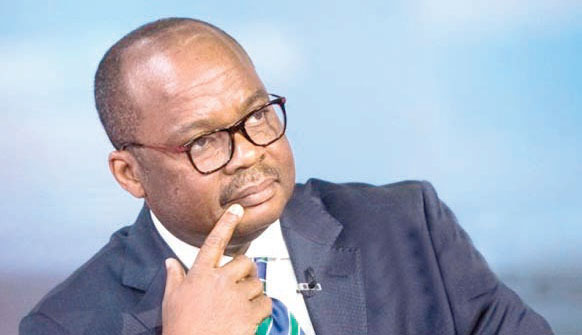Despite the policy rate of the Bank of Ghana going down by one percentage points, it would take time for banks to cut their lending rates.
Data from the Central Bank shows that the average lending rate only dropped marginally by 1.7 percent since the start of the year to April 2021 despite inflation declining by 1.9 percentage points over the same period.
While the government is set to reap the benefits via lower cost of funding, investment advisory firm, Doobia, says the challenge would be to transmit the benefits to the private sector via lower lending rates, especially given that commercial banks take time to adjust their lending rates in response to positive market developments in Ghana.
“While most banks have generally tightened credit conditions in response to the pandemic [covid-19], we believe that the failure to transmit lower inflation and policy rates into cheaper credit for the private sector is also hampering credit demand. It is clear that attempts by the authorities to resolve the conundrum by devising new methods for calculating base lending rates are not having the desired effect on credit demand at the moment. And the status quo is likely to remain until the authorities find a way to make commercial banks more responsive to policy decisions and macroeconomic data releases”, it explained.
Consumer inflation has dropped further by 1.0% to a historical low of 7.5% in May 2021, from 8.5% in the previous month.
It is now below the midpoint of the Central Bank’s target range of 6-10% for the first time in history. This was driven by base effects and slowdown in imported inflation, arising from the relative stability of the local currency during the period.
Credit conditions eased but slightly
According to the Bank of Ghana, the stock of gross loans and advances (excluding the loans under receivership) increased to ¢47.6 billion at the end of February 2021, representing a 3.6% annual growth, lower than the 26.0% growth in February 2020.
The slower growth rate in total credit in February 2021 reflected declines in the annual growth rates of its components
The Central Bank also said the credit stance on loans to enterprises and households eased further in February 2021 in line with earlier projections, albeit marginally.
Results from the February 2021 credit conditions survey pointed to a marginal net ease in overall credit stance on loans.
However, credit stance on loans to large enterprises tightened marginally and is projected to tighten further in the next two months.
The stance on SME loans was however expected to ease between February and April 2021.
Latest Stories
-
Yendi Solar Project: Bui Power Authority starts disbursement of compensation to landowners
5 minutes -
Mahama commends Ato Forson and BoG Governor for spearheading economic turnaround
21 minutes -
NPP Flagbearership: What has each prospective candidate done for Ghana in public office?
39 minutes -
Samira Bawumia Literature Prize announces call for entries for 2025 edition
50 minutes -
Bril and Kwabena Wonda drop uplifting new single ‘He Lives’
59 minutes -
Why the NDC majority shields Mahama from impeachment—even amid constitutional Concerns
1 hour -
At dawn they hunt: The sacred ritual of Aboakyer’s deer chase
1 hour -
Mahama credits economic gains to policy reforms, unveils major road projects under ‘Big Push Programme’
1 hour -
Shocking: The state of Ghana’s railway system
2 hours -
Mexican beauty influencer shot dead during TikTok livestream
2 hours -
‘Save Our Mine’: Workers petition Regional Minister for urgent action amid Bogoso-Prestea Mine crisis
2 hours -
We want due process, not seeking relevance – NPP defends petitions against Sammy Gyamfi
2 hours -
Prioritise inauguration of key boards to restore efficiency and accountability – IET urges Mahama
3 hours -
Stabilising the Cedi key to enforcing forex rules – 1st Deputy Governor assures public
3 hours -
Leverage Artificial Intelligence to drive insurance efficiency – GIA President urges industry players
3 hours

